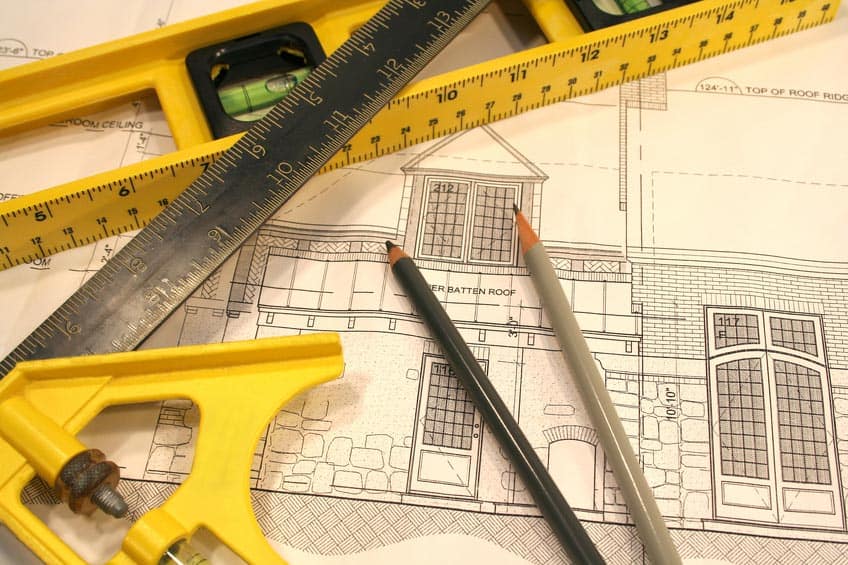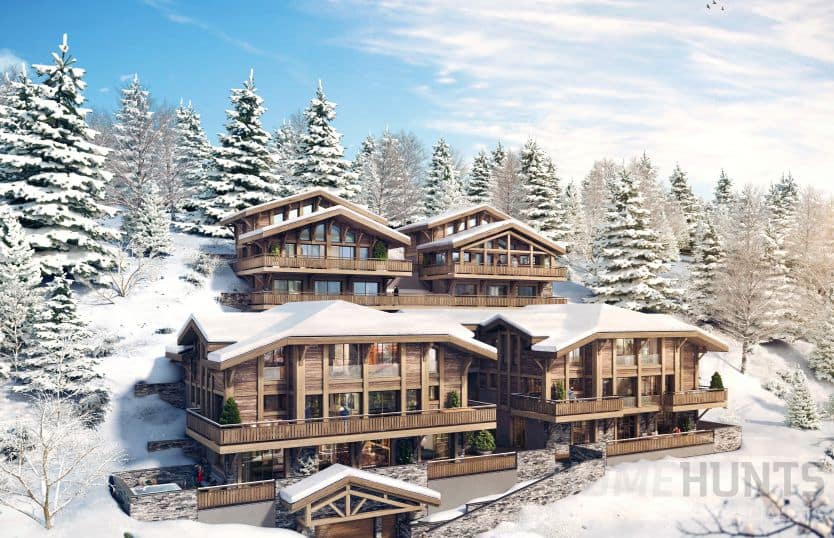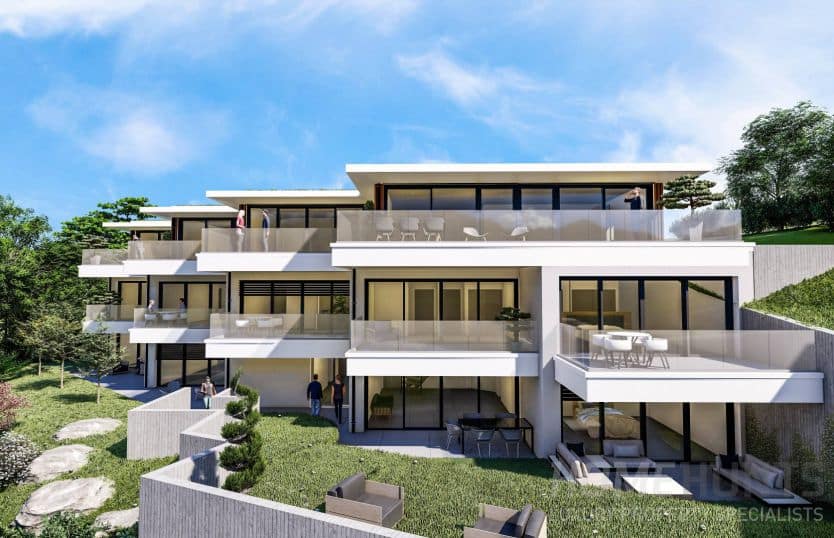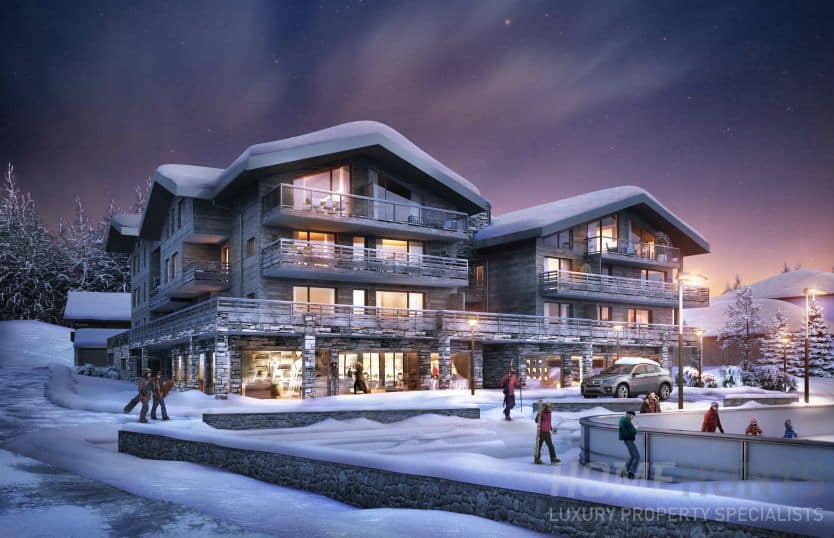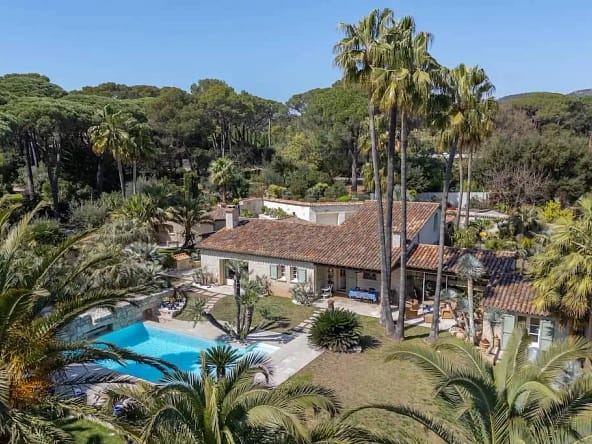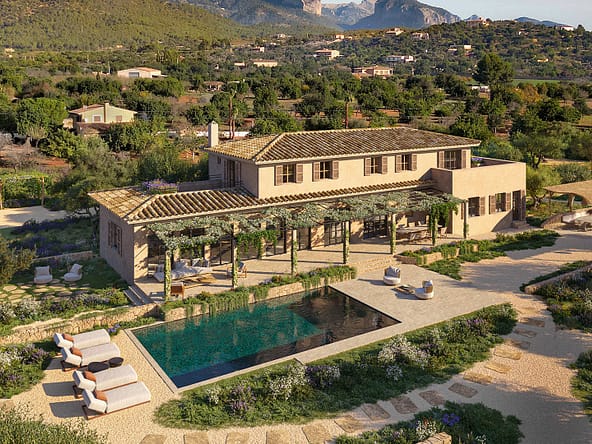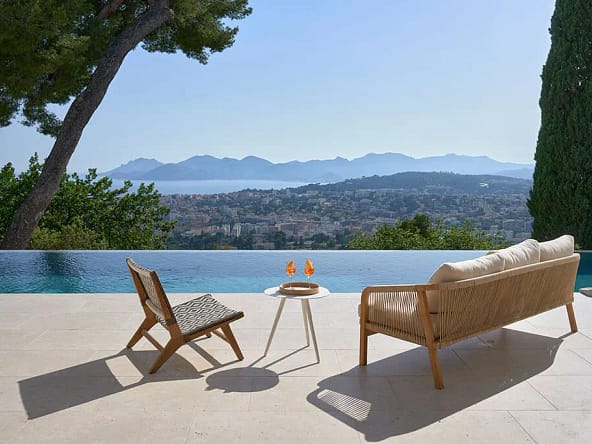If you’re interested in investing in luxury French real estate, there’s an option you may not have considered yet: new build property. Instead of seeking out the right home that’s already been built (and lived in), buying an off-plan new build property means you get a brand new space designed to your requirements, with all of the modern amenities you could want.
Practically any type of property can be purchased as a new build, and many of them are found in tourist-friendly areas – think city centres, along the coast or in popular ski resorts. That means that in addition to having a second home for you and your family, there could be fantastic rental opportunities if that’s something you’re interested in.
The new-build property market in France is heavily regulated by the French government, which means you, the buyer, has a lot of protection – and a lot of perks.
Topics covered in this guide
- Benefits of Buying New Build Property in France
- The Legal Process of Buying New Build Property in France
- Guarantees and Protections on a New Build Property
- Payments for an New Build Property
- Handover and Delivery of an Off-Plan, New Build Property
- Final Thoughts
Table of Contents
Benefits of Buying New Build Property in France
You won’t have to buy a property sight-unseen. While your future home may not be built yet, there’s still a lot to go on. Your property developer will be able to show you architectural drawings, artist impressions and a model of the development. Yes, you’ll still need to use your imagination, but not as much as you may think.
New build properties in France must use the latest materials and techniques. That means that your home is guaranteed to have luxuries like modern, high-quality heating and sound insulation while also being energy-efficient.
You can customise the design and decor of your new home exactly the way you want. That’s not always possible with an existing home, even if you plan on doing major renovations. Do you want several en-suite bathrooms or an open-plan kitchen? Talk to the property developer about it!
Fees are lower for off-plan new build property than an existing property. For an off-plan property, you’ll pay approximately 2-3% in notaire fees; for a property that’s 5+ years old, that fee goes up to around 7%. Also, you won’t be required to pay property ownership tax for your first two years in the home.
The building work is guaranteed to be completed by law. The garantie d’achèvement clause states that the work will be completed even if the developer goes bankrupt or if the developer does not stick to the agreed-upon time or budget constraints. Furthermore, under the VEFA contract (more about that later), your home is covered for 10 years in a variety of ways.
The value of the property will increase once it’s finished. That means that if you decide to sell, you could get much more than you put in.
The Legal Process of Buying New Build Property in France
While there are a lot of protections for buyers, the process isn’t entirely foolproof. It’s important to know what to expect at each step.
Preliminary Contract
When you buy an off-plan new build property in France, there’s a two-step process as far as contracts are concerned. The first one you’ll come across is the preliminary contact, called the contrat de réservation.
The full details of the property won’t be included in the contract; that comes later. If you’d like more information about the property at this stage, you can always ask the developer or the local mairie to provide the plans for it. Before signing the preliminary contract, it’s best to assess where the developer is in the process and if it seems like it will continue and be completed as expected.
It’s also important to know that the preliminary contract has more to do with getting a commitment from the buyer than ensuring the property developer’s responsibilities. And even if you sign this contract, the developer is not obligated to ultimately sell the property to you (your deposit will be refunded if the developer prevents the sale).
While the details of withdrawal options are defined in the VEFA, if the start and finish dates of development end up different than planned, the potential buyer may be able to withdraw the contract and possibly even seek damages.
Note that you don’t have to sign this contract at all if you don’t wish – it’s not a requirement in order to purchase an off-plan property. However, you have to weigh your hesitancy to sign against the fact that if you don’t, you could lose your ability to buy into the development if other interested parties do sign it.
Lastly, if you do sign the preliminary contract, do so in front of your own notaire, not the one who the property developer is working with.
The Deposit
You cannot pay a deposit before signing the preliminary contract. If a developer asks for a deposit ahead of time, this should raise a red flag. Instead, you’ll pay the deposit when you sign. The maximum deposit that can be requested is based on when development will be completed:
- Completion within 1 year: 5%
- Completion in 1-2 years: 2%
- Completion after 2+ years: 0%
The developer can’t use the deposit to fund the development. Instead, it’s put in its own account, like with the bank or notaire, and only withdrawn once the sale is finalised.
Cooling-Off Period
After signing the preliminary contract, there’s a 10-day cooling-off period. During this time, you can withdraw from the purchase and receive a full refund of your deposit without penalty.
This period begins when you receive a copy of the contract via recorded delivery. Even if the developer personally handed you a copy of the contract, you still have to receive a copy in a certified manner before the cooling-off period begins.
The VEFA Contract
VEFA stands for vente en l’état futur d’achèvement, also called vente sur-plan. This is the second and final contract to sign.
This contract should include any and all details of the property you’re buying. It’s also a good idea to compare the preliminary contract to the VEFA to see if there are any major differences. If you have a dispute in the future, it’s what’s laid out in the VEFA contract, not the preliminary contract, that will matter.
All of the details of the property, along with the cahier des charges, which clarifies the rules of the development you’ll be living in, must be given to you by law. However, the documentation will be in French, and it will be difficult to understand even by a French-speaking person who isn’t well-versed in this sort of real estate arrangement, so it’s best to hire a specialty advisor to explain everything to you.
You should also receive this contract by certified delivery one month before it’s time to sign. This should give you enough time to thoroughly go over it.
Price
While most off-plan properties will have a fixed price, some do have a provisional price instead. Either way, the contract will include the price of the property.
If the price is provisional, the contract has to also state the circumstances that could lead to a price change. Furthermore, the price cannot be legally increased more than 70% of the cost-of-construction price index amount.
Delivery Date
While the contract won’t lay out a specific delivery date, it should at least give you a time frame, like the second quarter of 2023. However, the more specific the delivery date, the clearer the penalties for late delivery will be, so it’s okay to put some pressure on the developer to narrow down the delivery date. Also, while there are no legal guidelines that say penalties will accrue for late delivery, you can add them to the contract if you wish (and if you’re able to negotiate those terms).
Fees
Legal and notaire fees for an off-plan property are less than the fees for an existing property – about 3% compared to roughly 7% or so. However, since it’s a new property, you’ll be paying VAT at 20%. Sometimes, the VAT is reimbursable if you sell the property after a certain number of years – this is more common with investment properties.
Grounds for Withdrawal
There are several instances in which the buyer can withdraw from the contract and be reimbursed for what was paid to the seller, including:
- The developer did not adhere to the date laid out in the preliminary contract for the VEFA signing.
- The final price in the VEFA is 5% or more higher than the provisional price and there wasn’t a clause in the contract that permitted a price increase.
- You’re unable to secure a mortgage, or you can only secure a mortgage for 10% or more lower than what’s in the contract.
- The finalised property is different from what’s in the contract’s plans and that difference lowers the value of the property by 10% or more.
- The communal facilities that are promised in the contract are not provided.
Insurance
When you sign the VEFA contract, you don’t just own the new-build property, but also the land that it’s constructed on – and any construction that’s already on that land. Because of this, you have to take out public liability insurance, as well as insurance against risks like fire. As the property becomes more developed, your insurance will have to increase to cover more.
Guarantees and Protections on a New Build Property
As mentioned earlier, the developer must provide a financial guarantee that ensures the building will be completed even in the event of bankruptcy, liquidation or another type of failure to complete it. This is called a garantie d’achèvement. Additionally, developers also have to provide a garantie extrinsèque, which states that funds are promised by a bank or insurer so that the property can be developed if there’s a bankruptcy.
What if the developer doesn’t actually begin work, though? The garantie de remboursement is what reimburses anything paid by the buyer if the developer defaults on the site before work has started or doesn’t start on time.
The developer is also required to remedy certain problems with the property for the first 10 years after its sale, called the responsabilité décennale:
- First Year: The developer has to take care of any property defects and complete the work on the property in full (la garantie de parfait achèvement).
- Second Year: The developer has to guarantee that the fittings are in working order (la garantie de bon fonctionnement). This includes electricity, heating, windows, etc.
- First 10 Years: The developer guarantees that anything concerning the building’s integrity and stability is taken care of (l’assurance décennale). This includes floors, the foundation, walls, etc.
There’s also a 30-year guarantee to ensure that the property meets the standards set in the specifications in the contract.
Payments for an New Build Property
The contract will state the stage payments (l’échelonnement du paiement du prix) to be made to the developer. Each payment will be a percentage of the total cost. For example, for a house, the payment schedule could look like this:
- Foundation: 20% due
- Superstructure: 45% total due
- Final Completion: 85% total due
- Handover: Final 15% due
The amount you paid as a deposit will be deducted from the first payment. So, if you paid a 5% deposit, your foundation payment would be 15%.
Handover and Delivery of an Off-Plan, New Build Property
Usually, the developer is not the same as the builder, and so there’s a formal, legal handover of the property between the two parties. Once the handover is completed, the next process is called “delivery.”
It’s important to remember that the handover and the delivery are two separate processes, each with its own report – procès verbal de réception and procès verbal de livraison, respectively.
The buyer only becomes the property owner during the delivery phase. It’s also smart to hire an independent professional to do a full inspection of the property before the delivery is finalised.
Final Thoughts
When you opt for off-plan property in France, you can have the perfect apartment in the middle of Paris, one that you’ve always imagined – or your dream villa in the country or French Riviera, or maybe a ski chalet in the Alps. And that’s just the beginning – the possibilities are endless.
If you are looking to invest on a new build property in France, HOMEHUNTS property agents will be able to find the perfect development and location for you. Search the HOMEHUNTS website and browse our selection of luxury homes. Alternatively, you can also speak directly to one of our property consultants by calling +33 (0)970 44 66 43.

